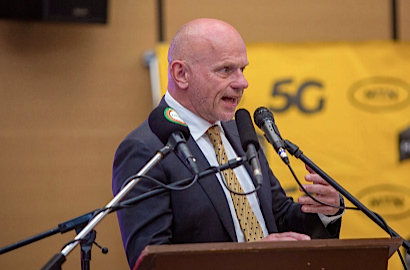MTN has launched its 5G network in Zambia after testing the new technology for 11 months and finding it to work well.
Bart Hofker, the CEO of MTN Zambia, says that the services are available to about 65% of the people in Lusaka, Kitwe, and Ndola, as well as some people in Chingola, Solwezi, and Kalumbila.
Mcebisi Jonas, Chairman of the MTN Group, said: “The launch of this ultra-fast communication capacity serves as a clear indication of MTN’s commitment to being a major player in Zambia’s digital economy. We look forward to continuing to work together to meaningfully impact the growth and development of Zambia.”
MTN made the announcement that it would begin rolling out 5G pilot demonstration locations in the provinces of Lusaka and Copperbelt in January 2022.
The company underlines 5G’s strong use case in industries such as mining and manufacturing because Zambia is home to one of the world’s highest-grade copper mines. The telecommunications company asserts that it plans to complete the rollout of its 5G network throughout Lusaka, Kitwe, and Ndola by the middle of 2023 while also gradually expanding the network to encompass other areas.
In addition, it plans to improve and update the 3G and 4G networks that are already in place, as well as cover more rural areas. MTN Global Connect will work closely with the Zambian government to construct a fiber ring throughout the country.
Read also: MTN, Airtel, others compete In second 5G license auction in Nigeria
Other Projects of MTN Zambia
In addition, as part of our rural connectivity program, MTN Zambia and its partners plan to establish 45 rural sites in 2022, followed by another 100 in 2023. These rural sites will use different ways to get faster and cheaper coverage.
After MTN finished buying Telecel in 2005, it started doing business in Zambia. The company now offers communication services on 4G, 3G, and 2G networks in all ten provinces of Zambia.
MTN believes that 5G will improve general Internet access in Zambia, which currently has a low penetration rate for fixed broadband. This is in addition to the many different ways that 5G can already be used.
A research firm known as Omdia anticipates that the number of fixed broadband subscriptions in Zambia will reach approximately 42,000 by the end of 2021. This is despite the fact that Zambia has a population of approximately 19.4 million people.
MTN Zambia and HUAWEI Launch 5G in January 2022
Because of its relationship with the Chinese tech giant and leading 5G vendor Huawei, MTN was one of the first companies to offer mobile services in Zambia. This marked the beginning of a new era for Zambia’s mobile network and made MTN one of the first companies to offer mobile services in Zambia.
MTN formed a partnership with Huawei in 2013 to construct the world’s first-ever 4G and GSMR network. Two years later, in 2016, MTN constructed the world’s first 4.5G network.
Felix Mutati, the Minister of Science and Technology in Zambia, made these remarks while attending the 5G demonstration in Lusaka. He claimed that the launch of 5G places Zambia among the first 10 African countries now piloting it. The minister said that the launch is important for his ministry because it is about building digital infrastructure, which is a key part of digital transformation.
Mr Mutatiti said there was no better New Year’s gift that could be given to the Zambian people than 5G to drive the digital transformation that the new dawn administration has begun. This was because 5G was the only thing that could drive the change. He commended MTN for giving the first 5G service to the people of Zambia, describing it as the most useful present they could receive. The minister complimented Huawei on the technical help that they provided for the project, noting that the technology that Huawei provides opens up countless doors of possibility.
There are signs that Zambia’s new Ministry of Science and Technology will lead to huge growth in the country’s telecommunications industry. This ministry aims to speed up the country’s digital transformation so that it can grow both economically and socially.




